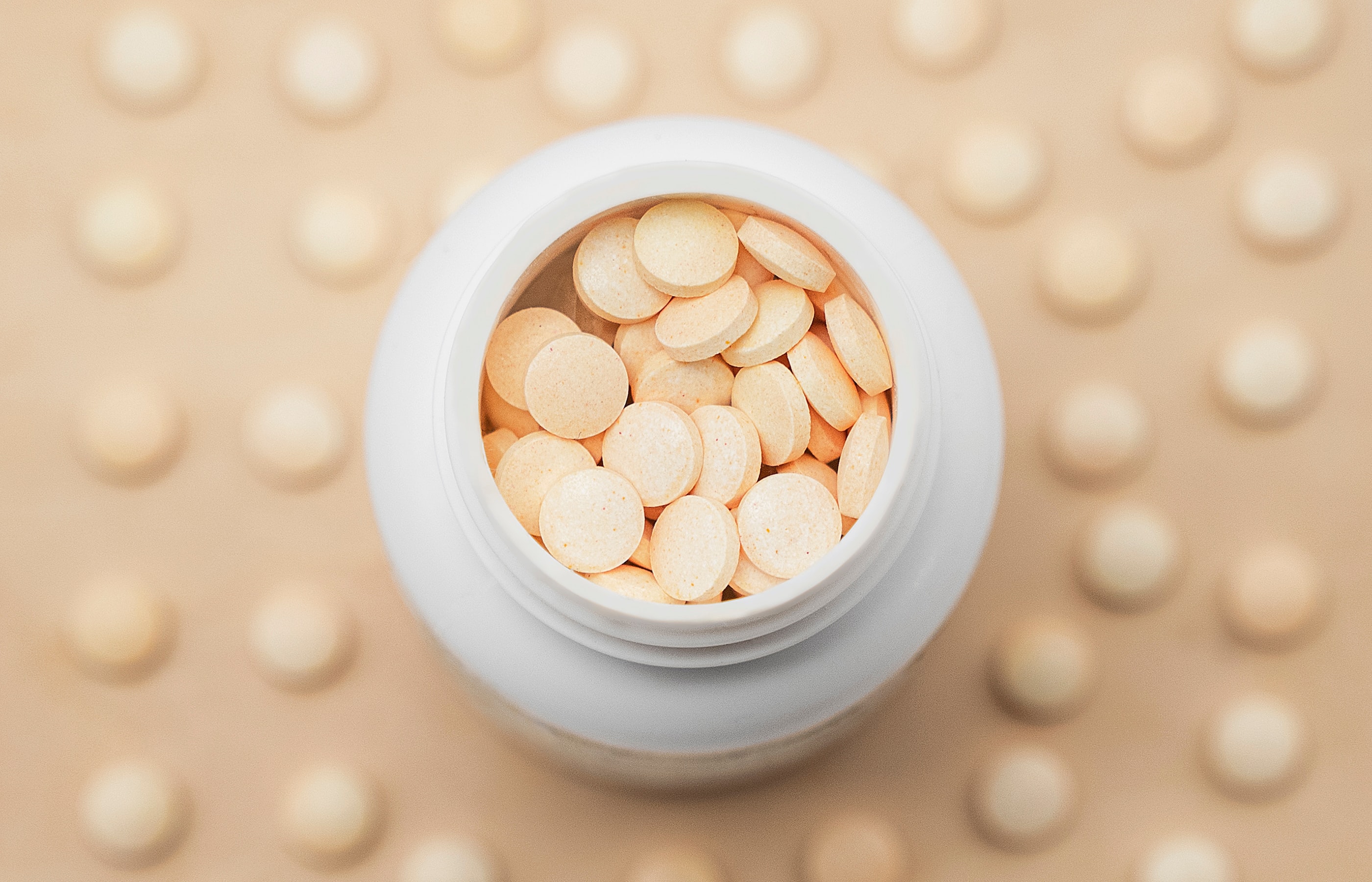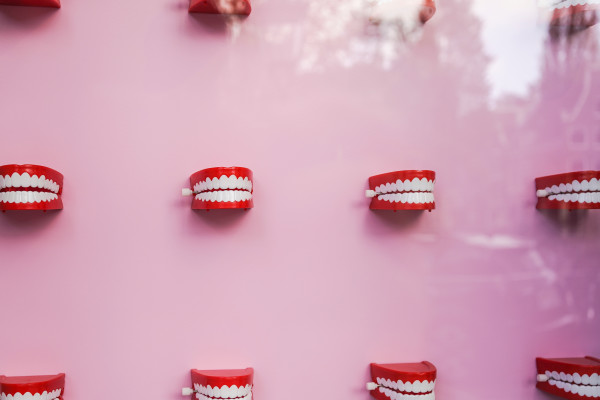Botanical supplements: what does the science say and what do I really need in my life?
9 months ago
Perimenopause9 months ago
Perimenopause
With more and more if us looking for a solution to perimenopause symptoms, it’s understandable that we're reaching for supplements to support us. But, can botanical supplements for perimenopause really help? We ask dietician Laura Clark for the lowdown
The supplement industry is big business, with nearly half of women who are perimenopausal or menopausal turning to some form of supplement to help reduce their health and symptoms. Vitamin D, magnesium and collagen are often top of the supplements shopping list at this stage of life, but botanical or herbal supplements are gaining in popularity, too.
Although the research is less well established, the anecdotal evidence around things like black cohosh and red clover suggests they can be helpful for top perimenopausal symptoms, such as night sweats and low mood. Laura Clark, a registered dietician specialising in perimenopause, explains what botanical supplements are and which ones we should put on our herbal hit list.
“These are supplements with active plant-based ingredients,” explains Laura. “They’re usually made of herbs, seeds or flowers, like St John’s wort or evening primrose oil, and have been used for centuries to treat specific symptoms.”
Researchers have already linked some botanical supplements to reducing hot flushes and balancing mood, but while the idea of something natural can be appealing, the evidence for their effectiveness isn’t as strong... quite simply because research around botanical supplements is currently scarce. Laura has her own take on what's hot and what's not and shares her insights here.
What is it?
A member of the buttercup family, black cohosh is a plant that was traditionally used by indigenous people for menstrual pain and childbirth. It’s one of the most widely studied botanicals for menopausal symptoms.
Scientists have found that taking black cohosh can reduce hot flushes and improve mood
What could it help with?
“Scientists have found that taking black cohosh can reduce hot flushes and improve mood, but the research results are mixed,” says Laura. They originally thought that the plant had an oestrogenic effect (which means it worked to mimic oestrogen in the body), so could be beneficial when your levels start to fluctuate and eventually fall. But, more recent studies suggest that it can improve perimenopausal symptoms because it affects our neurotransmitters like serotonin and dopamine (both happy hormones).
What is it?
This plant has been used as far back as the ancient Greeks for things like kidney and lung problems, insomnia and depression. “It can interact and cause some medicines like antidepressants and birth control pills to be less effective, so it’s always worth talking to a doctor before taking it,” says Laura.
What could it help with?
Research has found that St. John’s wort could reduce perimenopausal hot flushes. A study of 100 women found that those who took the supplement reported fewer hot flushes after 8 weeks. A wider review showed that it can improve mild to moderate depression for the general public and could improve mood disorders related to menopause. But more research needs to be done.
What is it?
Soy supplements come from the soybean, which contains phytoestrogens. These are plant-based chemicals that have oestrogen-like effects in the body. Supplements usually come in the form of soy protein or isoflavones (a phytoestrogen compound).
What could it help with?
“There’s strong research to support soy’s benefits when it comes to reducing perimenopausal hot flushes and night sweats,” says Laura. A review of studies found that soy isoflavones can reduce the severity of hot flushes, but researchers noted that it took on average 14 weeks for people to feel the effects, compared with 3 weeks when using HRT.
More recently, a study found that 60% of women became free of moderate hot flushes after eating a plant-based diet rich in soy (think nuts, seeds, edamame and soy milk) for 12 weeks. So, getting this one from your diet may be easiest and most beneficial.
Red clover is a herb that belongs to the same legume family as peas and beans. “It also contains phytoestrogens, so could work in a similar way to soy,” says Laura.
What could it help with?
A small study of 30 women showed that red clover (versus a placebo) reduced hot flushes by 44%. While other studies have suggested it might help to increase bone density and ward off osteoporosis in postmenopause. However, only a small amount of research has been done on the herb and studies have shown inconsistent results.
Women who took evening primrose oil twice daily for 8 weeks had significantly reduced night sweats
What is it?
This oil is extracted from the seeds of the flower. Many women have been using the supplement to help manage symptoms of PMS and menopause for years. It contains gamma-linoleic acid, which is an omega-6 fatty acid that’s said to reduce inflammation in the body.
What could it help with?
A recent trial found that women who took evening primrose oil twice daily for 8 weeks had significantly reduced night sweats (a top perimenopausal symptom), although it had no effect on hot flushes. A comparative study of black cohosh and evening primrose oil found that black cohosh was far more effective at reducing flushes.
What is it?
Sage is a savoury herb that’s been used historically to treat sweating and other menopausal symptoms. Supplements come in the form of tablets.
What could it help with?
A small Swiss study on women who experienced at least five hot flushes a day, found that taking a daily tablet of fresh sage leaves helped. After 4 weeks their hot flushes decreased by 50%, and 64% after 8 weeks. It had a particularly significant effect on severe flushes. The women also reported that it helped with symptoms like vaginal dryness, as well improving their mental wellbeing.
What is it?
Ashwagandha is a flowering shrub that grows in Asia and some parts of Africa. It’s an important herb in Ayurveda – a traditional form of medicine originating in India – and said to have anti-inflammatory effects.
What could it help with?
A study with 100 perimenopausal women investigated the effect of a twice-daily supplement of ashwagandha. After eight weeks, their menopause-specific quality of life scores significantly improved and symptoms like hot flushes, insomnia, vaginal dryness and urinary problems decreased. Wider research has found that it could also lower stress and anxiety levels, but more high quality research is needed.
“My advice before taking a supplement is to always check with a healthcare professional as some botanical supplements can interact with other medications,” says Laura. “My other advice would be to try a botanical supplement for three months or so. Keep a note of your symptoms to see if you feel a difference. If it works for you, keep taking it - and if there’s no discernible difference, save yourself the cash.”
 Cycle syncing
Cycle syncing Perimenopause
Perimenopause Perimenopause
Perimenopause Perimenopause
PerimenopauseSign up to learn everything you need to know about CycleMapping, plus how you can live better and feel better through optimising your fitness to you.
This website uses cookies to ensure you get the best experience on our website. Learn more

Sign up for the very latest news on women's fitness, health and hormones, plus be the first to receive exclusive offers and extras